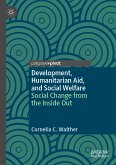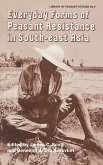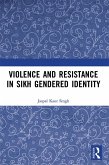Drawing on the culture-centered approach (CCA), this book re-imagines culture as a site for resisting the neocolonial framework of neoliberal governmentality. Culture emerged in the 20
th Century as a conceptual tool for resisting the hegemony of West-centric interventions in development, disrupting the assumptions that form the basis of development. This turn to culture offered radical possibilities for decolonizing social change but in response, necolonial development institutions incorporated culture into their strategic framework while simultaneously deploying political and economic power to silence transformative threads. This rise of "culture as development" corresponded with the global rise of neo-liberal governmentality, incorporating culture as a tool for globally reproducing the logic of capital. Using examples of transformative social change interventions, this book emphasizes the role of culture as a site for resisting capitalism and imagining rights-based, sustainable and socialist futures. In particular, it attends to culture as the basis for socialist organizing in activist and party politics. In doing so, Culture, Participation and Social Change offers a framework of inter-linkage between Marxist analyses of capital and cultural analyses of colonialism. It concludes with an anti-colonial framework that re-imagines the academe as a site of activist interventions.
Dieser Download kann aus rechtlichen Gründen nur mit Rechnungsadresse in A, B, BG, CY, CZ, D, DK, EW, E, FIN, F, GR, HR, H, IRL, I, LT, L, LR, M, NL, PL, P, R, S, SLO, SK ausgeliefert werden.









